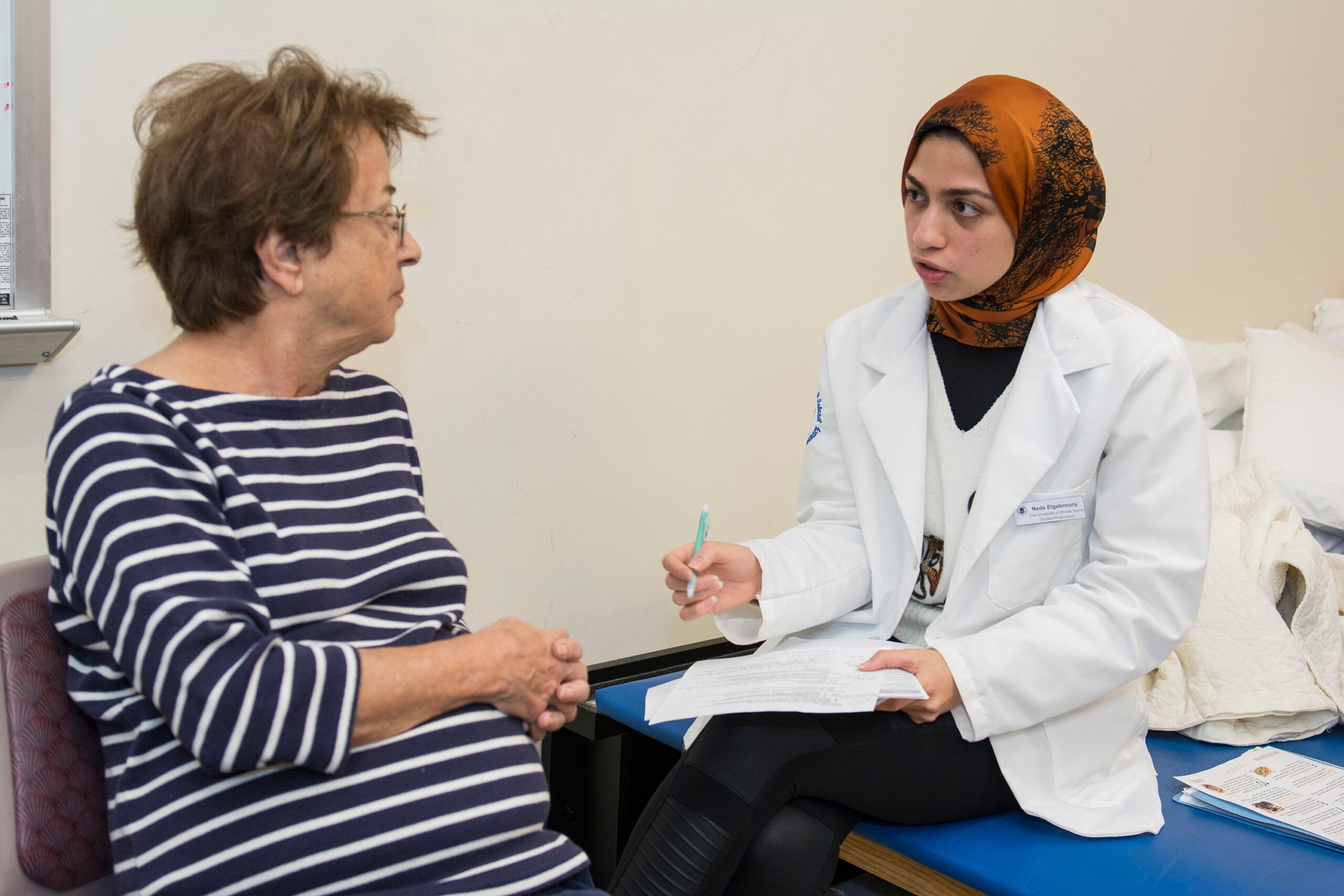KINGSTON, R.I., November 9, 2016 — An older man carefully walks a straight line marked on the carpet while students assess his gait. Down the hall, a woman rises from her wheelchair to demonstrate a new prosthesis. In a room nearby, students advise a woman on medication use.
Nearly 30 older adults from the community are at the University of Rhode Island this October morning as volunteers in the Senior Health and Wellness Program. The annual event is organized by the Colleges of Health Sciences, Nursing and Pharmacy — which form the Academic Health Collaborative — as well as Johnson & Wales’ physician assistant program. About 120 graduate and undergraduate students break into teams to provide health screenings and recommendations for each volunteer.
The program started nearly a decade ago with about 14 volunteers and physical therapy students, says Janice Hulme, associate clinical professor of physical therapy and an event organizer. In recent years it has expanded to include pharmacy, nursing and nutrition students, and plans are in the works to add social work majors and other disciplines.
Teams include students from physical therapy, nutrition, pharmacy, nursing and physician assistance. “Initially, they’re very nervous,” she says of the students, who gain tangible clinical expertise and improve communication and teamwork skills. “Afterward, they tell us it is one of the greatest experiences they have.”

At an initial meeting in September, the teams assess each person’s health — diet, vital signs, sleep habits, medications, mobility, strength, balance. The teams then gather to review findings and write recommendations for each person. A month later, the volunteers return for reassessments and recommendations.
“This is an excellent example of interprofessional education, and it’s a service to the community,” says Geoffrey Greene, professor of nutrition. He says the program allows students to experience the multi-disciplinary approach to health care, which is becoming the norm.
The program is feeding research as well. Faculty have begun collecting data from student participants to gauge learning through interprofessional education and teamwork, Hulme says.
“It’s great because it gives us a chance to learn what everyone else does and to see how they do it. Each person might see something different,” says Antoinette Gagliard, a physical therapy major from Walpole, Mass. “And they (the volunteers) are so sweet; they brighten our day.”
“It’s pretty fun,” adds teammate Austin Faria, a pharmacy student from East Providence. “I like how the other disciplines are folded in.”
Their team is working with Pauline Tudino of Narragansett, assessing how she moves from a seated to standing position, then asking her to draw the face of a clock to illustrate 11:10. “I enjoy coming here. It keeps me smart,” she says. “You have to stay ahead of theses guys.”
Helen Kwetkowski of Narragansett was relieved to know that she would not have to remember the team’s advice because it would be provided in writing. “I want to take the paper to the doctor,” she says. Hulme notes that faculty review each report before it is mailed.
The students receive valuable advice, too. “One year students didn’t ask before referring to seniors by their first names, and a woman called them on it,” Hulme says. “It opens their eyes about older people.”
That is what Mary Patton of South Kingstown had in mind. “It was my opportunity to talk to them about how seniors should and should not be treated.”
The morning ends with a feedback session, during which volunteers praise the students’ clinical expertise, communication and professionalism. And just as importantly, the students discover how meaningful their work can be: A man with Parkinson’s disease tells the group that thanks to his team he now has hope for a healthier and happier life.

